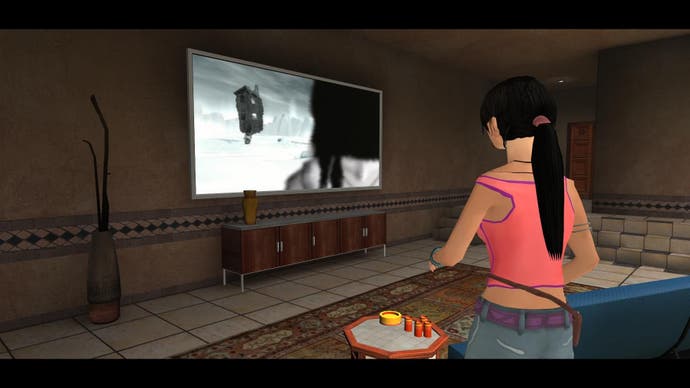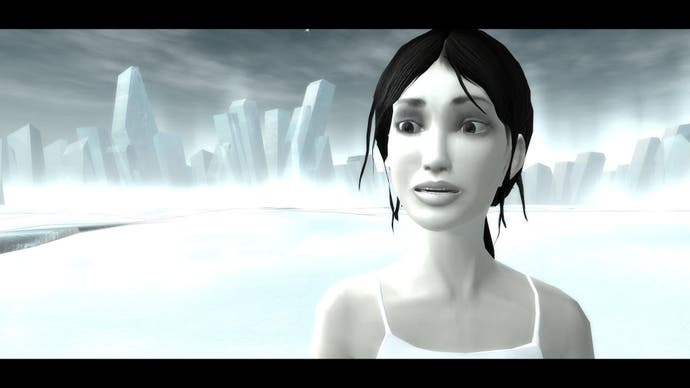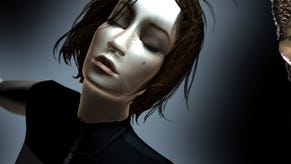Retrospective: Dreamfall: The Longest Journey
Find her. Save her.
The Longest Journey is my favourite game. It's not the best game ever made. It's not the best-written, although it's up there. It certainly isn't the best example of an adventure game. But it's the game that most touched me - a game that literally changed my life. It changed how I think, an aspect of how my imagination works, and my philosophy. I'm not sure what higher praise could be offered.
So when the sequel arrived, six years later in 2006, I'm not sure I could have anticipated a game more. What's so fascinating about Dreamfall is how it exceeded my expectations at the same time as letting so many of them down. As a game, it's a mystery.
The Longest Journey (and you can expect spoilers for both games here, to their ends) told the story of April Ryan. An 18-year-old who found she could "shift", transitioning between a near-future of our own world, known as Stark, into an alternative reality called Arcadia.
Stark is science, technology, progress. Arcadia is magic, fantasy, imagination. They were the results of the universe being split in two in order to maintain the Balance.
One aspect that made TLJ quite so remarkable was that it turns out April Ryan is not the saviour of the universe. She believes she's going to be, she's certainly set up to think she will be, but in the end it turns out that that person is a guy called Gordon. An ignominious saving role sees him cast as the Guardian, holding the two worlds in balance for the next few thousand years, leaving April with - well - nothing to do.

Dreamfall is set 10 years later and defies every expectation. It doesn't begin with April Ryan, but rather Brian Westhouse, a relatively incidental character from the first game. Then shortly after we find ourselves in control of Zoe Castillo, a 19-year-old college drop-out living in Casablanca in 2219. Despondent, possibly depressed and certainly bored, Zoe isn't in a great place.
Having given up on her degree, and then broken off a seemingly strong relationship, she's back living with her father, moping around the house in a state of ennui, and without direction. Until the television screen in her room flickers and reveals a ghostly image of a child who frantically whispers that she must, "Find her! Save her!"
"Her", we soon learn, is April Ryan. But despite briefly taking control of the previous hero, we're back with Zoe pretty quickly, and it's with her that we spend most of the game.
That's the first way Dreamfall defies expectations. The second is to not be a point-and-click adventure.
It's instead viewed as a third-person action-adventure, but with the emphasis on the adventuring over the action. Unfortunately though, not quite enough. Because Dreamfall oh so ridiculously includes combat.
Not a great deal, and some can be avoided if you talk or sneak your way out of it, but it's there, and it's awful. No one was expecting that.

Which is a shame, because third-person is, I think, exactly where the adventure genre should have gone. It makes perfect sense. It allows much more interesting interaction, especially letting you climb, jump, etc, while still picking up objects and manipulating the world as you'd hope. Just without the flipping fighting.
And so Dreamfall goes, back and forth between brilliant ideas and absolute blunders. For every brilliant narrative idea, there's a puzzle that requires you to run back and forth through a labyrinthine set of streets over and over and over, for seemingly no reason other than to make the game last twice as long.
For every stunning piece of moving acting, there's an incidental voice that sounds like the cleaner was forced into the recording booth at gunpoint.
But this is a retrospective, so the joy is I can ignore all the crap and just talk about what I loved, and why Dreamfall is still a stunning experience, despite being an often weak game.




